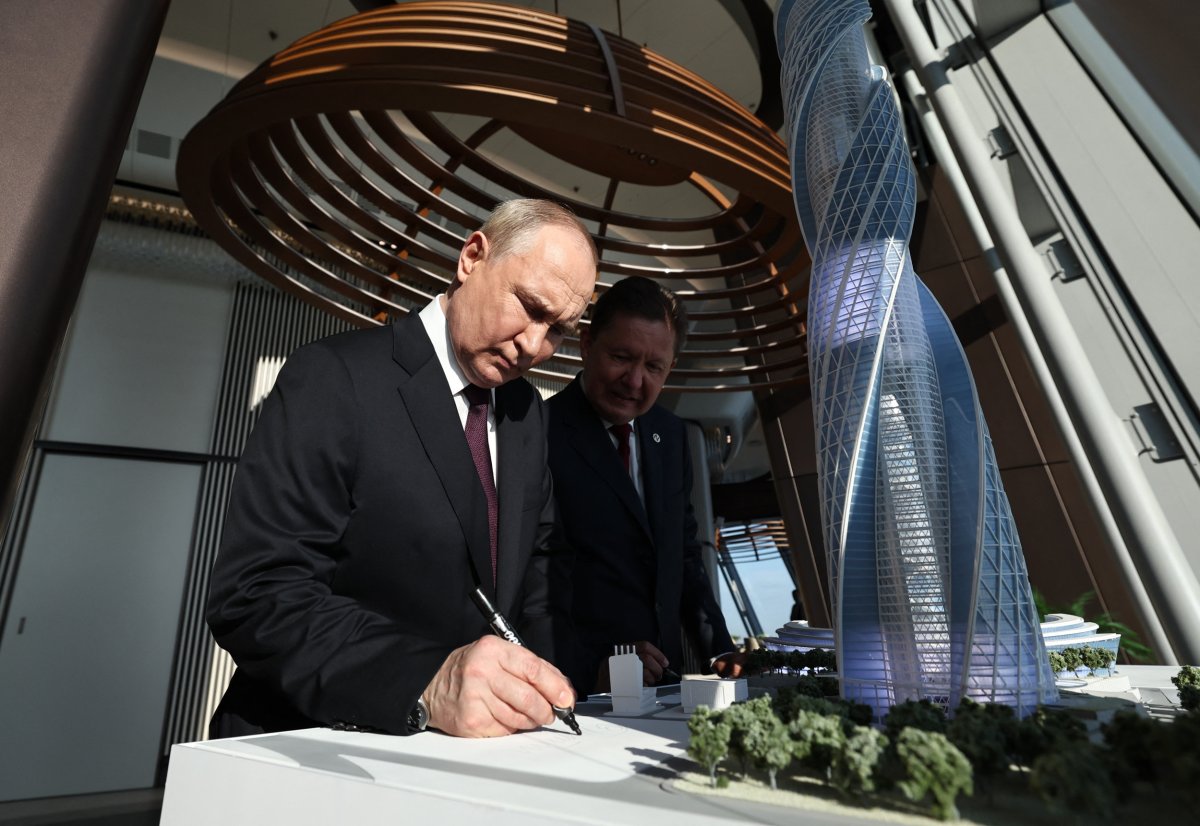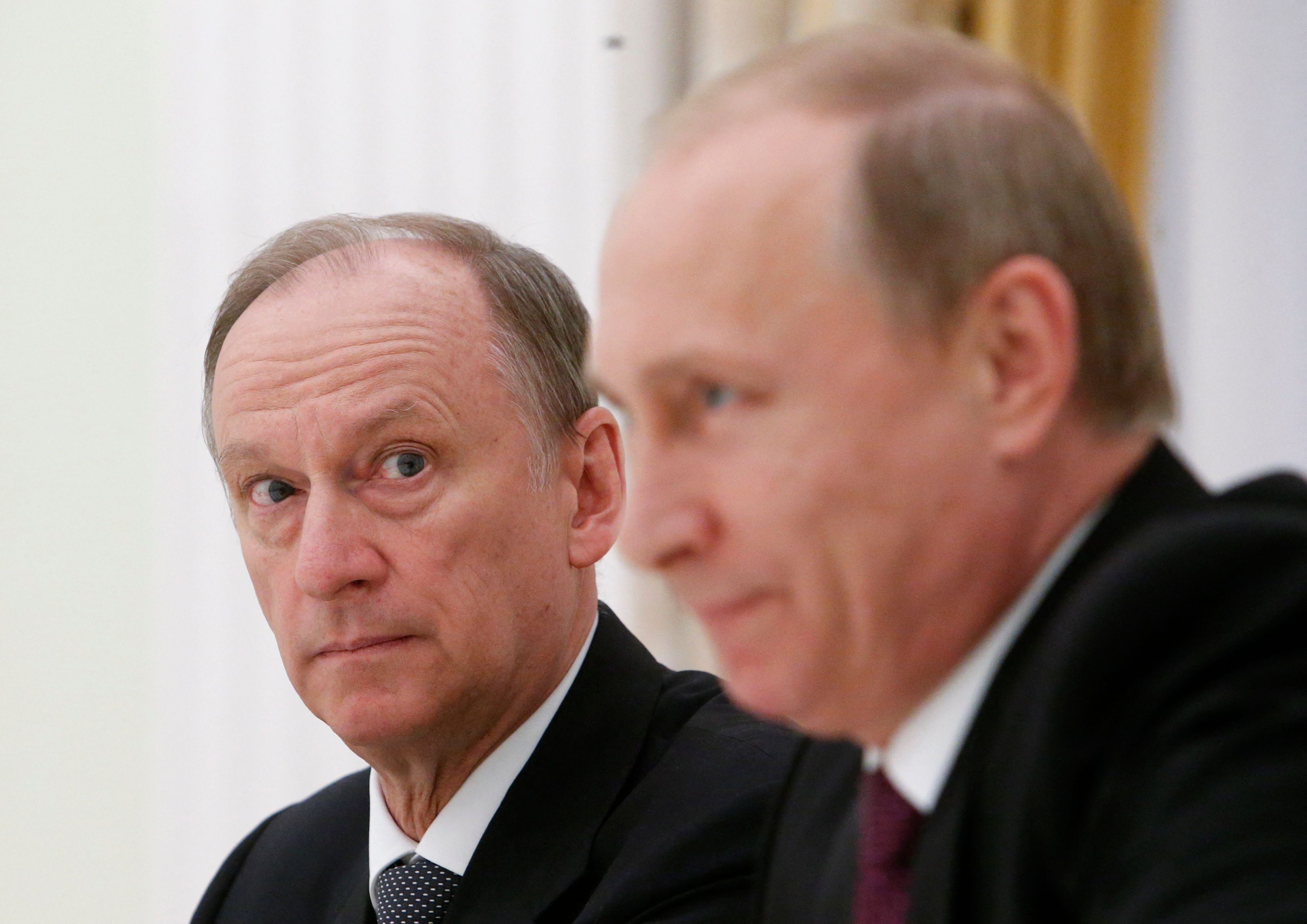Russia's energy sector has suffered a series of recent setbacks that have hurt the exports critical for funding Vladimir Putin's invasion of Ukraine.
U.S.-led sanctions on Russian oil have been followed by its key trading partners China and India rejecting shipments of the commodity.
Berlin-based energy analyst Tom O'Donnell told Newsweek that the latest sanctions could significantly hurt Moscow, and targeting Russian oil could be a key weapon that the incoming President Donald Trump could use as leverage against Putin.
Moscow has also accused Ukraine of launching a failed drone attack against last major gas pipeline into Europe. Dwindling natural gas revenues have preceded energy giant Gazprom proposing to slash its staff numbers.
Newsweek has contacted the Kremlin and Gazprom for comment.

Why It Matters
Russia's energy sector is the main revenue generator for the country, and exports of natural gas and oil are critical for Putin to meet his plans for military spending, which, in 2025, will be a third of the government budget. Sanctions on these commodities could hamper the Russian leader's ability to wage war.
What To Know
Days before President Joe Biden leaves the White House, the U.S. announced on January 10 its toughest sanctions yet on Russia's energy sector.
This included a joint pledge with the U.K. to block oil producers Gazprom Neft and Surgutneftegas and to sanction vessels that are part of a "shadow fleet" Russia has used to evade a $60 price cap. The U.S. also took steps to block two active liquefied natural gas (LNG) projects, a large Russian oil project, and third-country entities supporting Russia's energy exports.
Oil to China and India in Question
China and India have increased their imports of Russian oil, but this deepening trading partnership is under strain, with reports that both countries are getting cold feet about accepting the commodity key to the Kremlin's coffers.
Within days, vessels allegedly part of Russia's shadow fleet carrying Eastern Siberia-Pacific Ocean (ESPO) crude oil from Kozmino port in Russia were diverted from their planned ports in China, Bloomberg reported.
The Huihai Pacific, which was due to arrive at Dongjiakou in Shandong province, changed course and is now parked offshore and laden with oil. Two other tankers, Mermar and Olia, were bound for Yantai but are sitting in the Yellow Sea, the news outlet said.
Citing an unnamed Indian official, Bloomberg reported Monday that India would not allow tankers sanctioned by the U.S. to discharge, excluding vessels chartered before the sanctions were announced, provided they unload by March 12.
O'Donnell told Newsweek that stranded vessels showed last week's sanctions would more effective than the price cap on oil, especially as Russian oil exports were dwindling due to OPEC [Organization of the Petroleum Exporting Countries], as well as quotas and an oversupplied market.
O'Donnell added that, if Donald Trump really wants to push Putin hard for a deal to end the war, he could sanction the export of oil products from Russia.
Gazprom Problems
Two weeks after a gas transit deal between Russia and Ukraine expired, Russia's Defense Ministry accused Kyiv of firing drones at a gas compressor station that forms the TurkStream pipeline. Ukraine has not commented on this, and gas giant Gazprom said the facility is operating normally and that supplies through the pipeline were not disrupted.
But the Russian natural gas firm has also proposed cutting its staff numbers from 4,100 to 2,500, as it faces dwindling revenues and production that will be hurt further following the latest U.S. and U.K. sanctions, which also target shipborne LNG.
What People Are Saying
Energy analyst Tom O'Donnell told Newsweek: "New sanctions that have been imposed on Russia seem quite significant.
"If Donald Trump really wants to hurt Russia, as part of his push to get a deal with Putin, he can simply sanction the export of oil products from Russia, especially from Russia's westward export terminals. This could be devastating to Russian exports and Russian export revenues."
What Happens Next
Expectations that U.S. sanctions on Russian oil would force buyers in India and China to seek other suppliers caused prices to climb to a four-month high on Monday, Reuters reported.
China's state oil companies and large private refiners are also turning to crude cargoes from the Middle East and elsewhere, hastening preparation for potential disruption in fuel supply, Bloomberg reported.
The reported job cutbacks at Gazprom and the losses it has posted point to further difficulty for the gas giant to find new markets for the fuel.




















 English (US) ·
English (US) ·